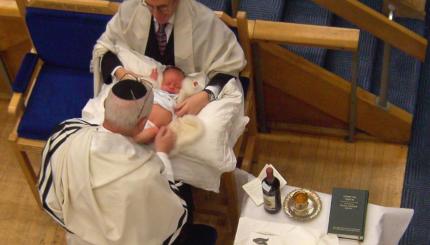Tazria Text Study
Life, Death and Impurity
Ritual purity laws highlight the power of confronting mortality and the subsequent need to ritualize the reaffirmation of life.
Parental Sacrifice
The burnt offering and the sin offering that a woman brings after childbirth symbolize the dual nature of parenting.
Better Than God?
The ritual of circumcision allows us to partner with God in the covenant and also in perfecting creation.
Cycles Of Life, Death, And Purification
The cycle of life and death represented by leprosy encourages us to bring acts of purity into our lives even when we have become impure.
Recognizing God’s Presence
When we welcome baby girls into the covenant we allow them to remind us of God's presence in the world.
The Leprosy Of Irresponsible Speech
Learning to control our speech will enable us to transform the world into a community that respects the shared humanity of all people.
Judging Ourselves And Others
The priest's role in declaring and treating leprosy, a physical manifestation of spiritual impurity, teaches us not to judge our own or others' spiritual lives.
Parashat Tazria: Summary
God instructs Moses about the purification rituals for mothers following childbirth; God then describes to Moses and Aaron the procedures for identifying and responding to those infected with leprosy.
A Gay Perspective On Punishment And Disease
Understanding God's presence in disease means viewing illness not as a punishment, but as an opportunity to treat others as created in the image of God.

